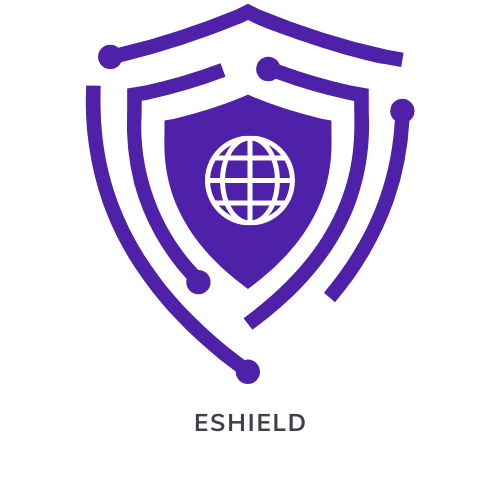
Eshield IT Services is among the top cyber security companies in Saudi Arabia.
We provide a wide range of cybersecurity services to our clients in the Middle East. Moreover, these services including but not limited to:
Personal Data Protection Law(PDPL):
The Kingdom of Saudi Arabia has published its first-ever comprehensive data protection law. The Personal Data Protection Law (PDPL) aims to protect individuals’ personal data privacy. It also aims to regulate organizations’ collection, processing, disclosure, or retention of personal data. The PDPL provides comprehensive requirements related to processing principles, data subjects’ rights, and organizations’ obligations while processing the personal data of individuals. Additionally, it establishes cross-border data transfer mechanisms. Furthermore, it lays out penalties for organizations in case of non-compliance with the PDPL. The PDPL, one of its prominent features, does not prejudice any provision that grants a right to the data subject or stipulates better protection in any other law or an international convention to which Saudi Arabia is a party. Reference
SAUDI ARABIAN MONETARY AGENCY (SAMA):
The Saudi Arabian Monetary Authority (SAMA) is the central bank of Saudi Arabia. SAMA introduced its Cyber Security Framework in 2017 in order to guide regional organizations. It guides them on how to effectively maintain the protection of information assets and online services. All financial institutions regulated by SAMA are responsible for complying with the Cybersecurity Framework. This includes all banks, insurance companies, and finance companies that operate within Saudi Arabia. Compliance preparation starts with developing and following a data protection strategy. A solid and efficient strategy includes data encryption and wiping.Reference
PCI DSS:
The PCI Security Standards Council (PCI SSC) is a global forum that brings together payments industry stakeholders. Consequently, it develops and drives the adoption of data security standards and resources for safe payments worldwide. The PCI SSC’s mission is to enhance global payment account data security. This is done by developing standards and supporting services that drive education, awareness, and effective implementation by stakeholders. We achieve this with a strategic framework to guide our decision-making process. Thus, ensures that every initiative is aligned with our mission and supports the needs of the global payments industry.Reference
Anti-Cybercrimes Law:
The Anti-Cybercrime Law was issued through a Royal Decree in Saudi Arabia in 2007. The law aims to combat cybercrimes by identifying such crimes and determining punishments. It ensures an information security management system policy while protecting rights related to the legitimate use of computers and information networks. Additionally, it safeguards the public interest and morals, as well as protects the national economy.Reference
Implementing Regulations of the Telecom Law:
The Saudi telecoms market is the largest in the GCC. Its licensing structure provides opportunities for a variety of market participants. In this article, we outline the various license categories and the violations associated with non-compliance. The Telecoms Law (Royal Decree No. (M/12) of 12/03/1422H (3 June 2001); Council of Ministers Resolution No. (74) of 05/03/1422H (27 May 2001)) designates the Communications and Information Technology Commission (CITC) as responsible for identifying available telecommunications-related licenses in the Kingdom. The CITC also establishes the conditions for obtaining the relevant license. The Telecoms Law encompasses four broad license categories, further detailed in the Telecoms Regulations (Telecom Act Bylaws (Ministerial Resolution No. (11) of 17/05/1423H (27 July 2002))). Reference
The Cloud Computing Regulatory Framework:
Eshield IT Services is among the best cloud security companies in Saudi Arabia. The Communications Law (referred to as the “Law”) regulates the communications and information technology sector. It aims to create and encourage a climate for fair and effective competition in all areas of communication and information technology. Article Three of the Law specifically highlights this objective. Reference
The Medical Practitioners Law:
The Kingdom of Saudi Arabia has undergone significant cultural and legal changes in recent years. The Ministry of Health (MOH) is actively working towards the privatization of various sectors within healthcare in the country. In March 2021, the National Center for Privatization (NCP) issued the Saudi Privatization Law. This law governs the relationship between governmental entities and private parties involved in privatization projects. The Privatization Law specifically targets the healthcare sector. Furthermore, the E-commerce Law stipulates that service providers should retain a customer’s personal data or electronic communications only for the necessary duration of the electronic transaction, unless an alternative period is mutually agreed upon. Reference
The Ecommerce Law of 2019:
A service provider is responsible for protecting customer’s electronic communications or personal data in its possession or in the possession of the entities or agents that it deals with. Also it is prohibited from using customers’ personal data or electronic communications for unauthorized or impermissible purposes. Moreover, preventing from disclosing the same to third parties, whether against or for no consideration unless the consumer consents to such disclosure or the same are required by law. local and foreign investment to optimize state-owned assets.Reference
The National Data Governance Interim Regulations:
The Interim Regulations establish the legal outline for individual rights protection regarding the processing of personal data by all internal and external entities of the Kingdom. The Regulation also defines the role of the Saudi Data and Artificial Intelligence Authority (SDAIA) and its sub-entities, such as the National Data Management Office (NDMO).Reference
Our services include consulting, assessment, support, and verification services.

In recent years, Saudi Arabia has seen a fast expansion in the usage of digital technology, which has heightened the risk of cyberattacks. In response to this threat, the Saudi government established the National Cybersecurity Authority (NCA) as the government institution in charge of cybersecurity in the kingdom. It serving as the national authority on its issues. Moreover, the NCA has both regulatory and operational cybersecurity functions, and it collaborates closely with public and private entities to improve the country's cyber attack simulation posture. Thus, protecting vital interests, national security, critical infrastructures, high-priority sectors, and government services and activities in accordance with Vision 2030.

